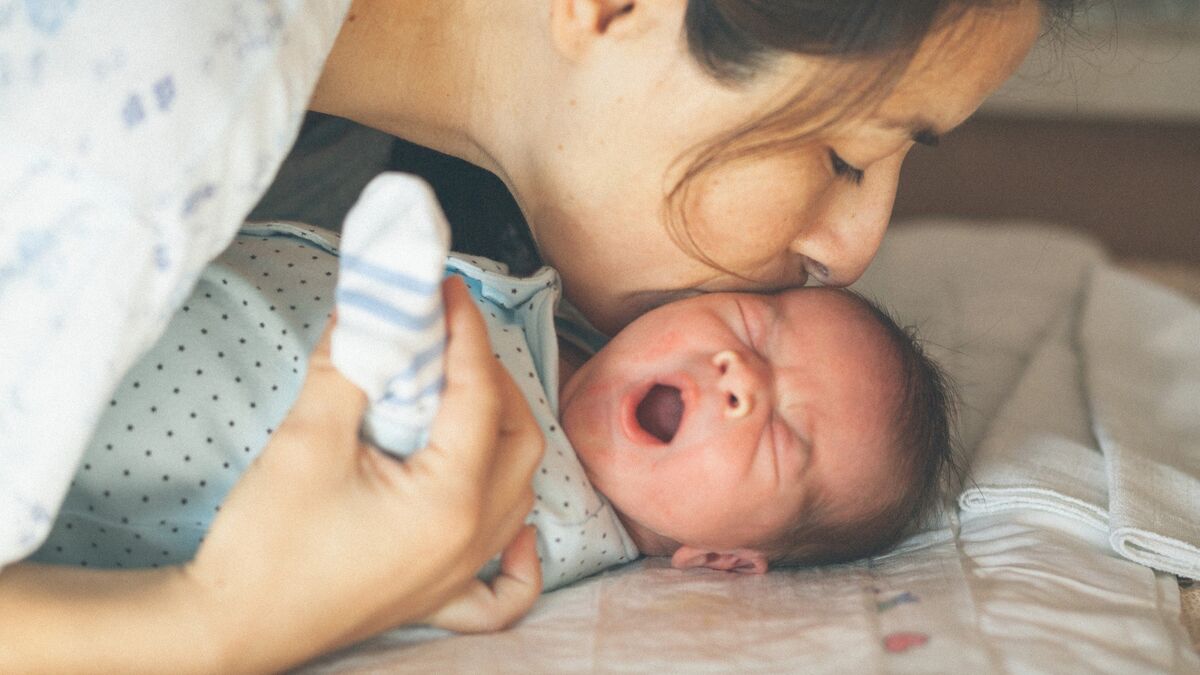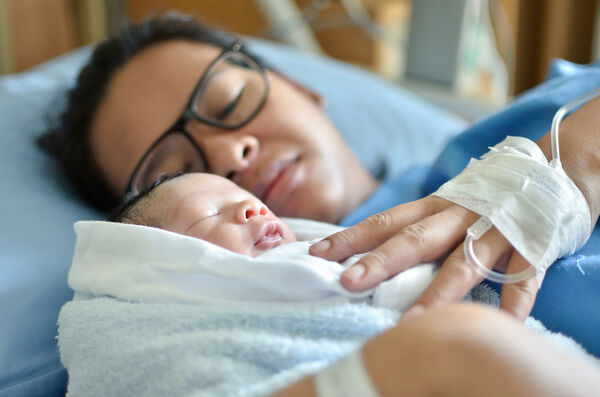How we choose conditions
Designing the NHS-embedded Generation Study

How we choose conditions
There are thousands of potential conditions that can be tested for through genome sequencing. It was important for us to carefully consider which conditions should be looked for in the Generation Study.
Our study is the first time that genome sequencing is being researched in a newborn screening context in the NHS and on a national scale. We have been committed to doing this in a robust, transparent and fair way in collaboration with NHS experts, people living with rare conditions and the public.
We designed four principles to guide us in selecting conditions that will be looked for in the study. They allow us to provide clarity to parents when they choose whether to participate in the Generation Study. We have taken a cautious approach to selecting which conditions to include.
We have produced a one-page document which sets out the four principles.
How we designed our four principles to guide us in selecting conditions that will be looked for in the study.
The four principles that guide us are:
A: There is strong evidence that the genetic variant(s) causes the condition and can be reliably detected.
How we developed these four principles
We worked with healthcare professionals, scientists, policymakers, members of rare condition communities and the public to develop these principles. In early 2022, an expert working group developed a set of draft principles. This was followed by a three-month engagement process, where a wide range of people and organisations helped us to refine and improve these principles.
We were supported by public engagement specialists Involve, to carry out an online survey and workshops with members of the public, people living with rare genetic conditions, and healthcare professionals.

Reviewing conditions and genes
Genomics England reviewed over 900 genes and associated conditions using a standardised process, collating evidence to assess whether the four principles were met. This included conditions listed at Rx-genes and suggested to us by clinicians, scientists and patient organisations.
All four principles need to be satisfied for a condition to be included, and all hold equal weight. However, the principles are broad because conditions can present variably, so some flexibility may be needed, and further discussion required.

Working with the NHS to establish a list of conditions

Working with the NHS England Genomics Unit, we established the NHS England Newborn Genomes Programme Clinical Assurance Group. This group is made up of experts from organisations including NHS England, Clinical Reference Groups, NHS Genomic services, the UK National Screening Committee, the National Institute for Health and Care Excellence, Royal Colleges and other professional bodies. The aim of this group is to provide assurance that the appropriate care and treatment for each condition included in the study is available through the NHS and can be accessed in all parts of England.
Through this group, we worked with national specialty advisory, clinical leads and commissioning leads from Clinical Reference Groups across 13 paediatric specialty areas, as well as relevant specialists and expert groups to review the evidence we had gathered.
Reviewing gene variants

It is important that we look for gene changes (called 'variants') which can accurately predict that the condition will develop, and that the genome sequencing technology we use in the study can find these changes.
We are working with specialist clinicians and clinical genomic scientists to ensure we only look for variants where we know, to the best of our knowledge, that they will cause a condition. This means we won’t be looking for ‘variants of uncertain significance,’ which are changes in our genome that we don’t know the impact of.
Conditions we're looking for in the study
For more general background on the earlier stages of our work on ‘choosing conditions’, watch this video where Amanda Pichini and Dr David Bick discuss our approach at the 2022 Genomics England Research Summit.
We have compiled a list of more than 200 conditions caused by changes to more than 500 genes.
These conditions are rare. We expect that only a small number of babies will be suspected to have one of these conditions in the study – about 1 in 100. When a condition is suspected, follow-up testing in the NHS is needed to confirm whether or not the baby has that condition.
It’s important to note that, like any screening test, this test only looks for certain gene changes causing some rare conditions. It doesn’t cover all health conditions and will not detect all cases of the conditions on our list. The study is for research, and separate from the NHS newborn blood spot test, which is a standard screening test offered to all babies as part of standard care. As we learn more from the study and respond to emerging evidence and research, the list of conditions and gene changes we test for may change, with some conditions added or removed. Babies in the Generation Study will be tested for the conditions listed at the time they joined the study, and will not be re-analysed if this list changes.
To see previous versions of the conditions list, please contact us at [email protected].
Get in touch
You can contact our team with any queries.